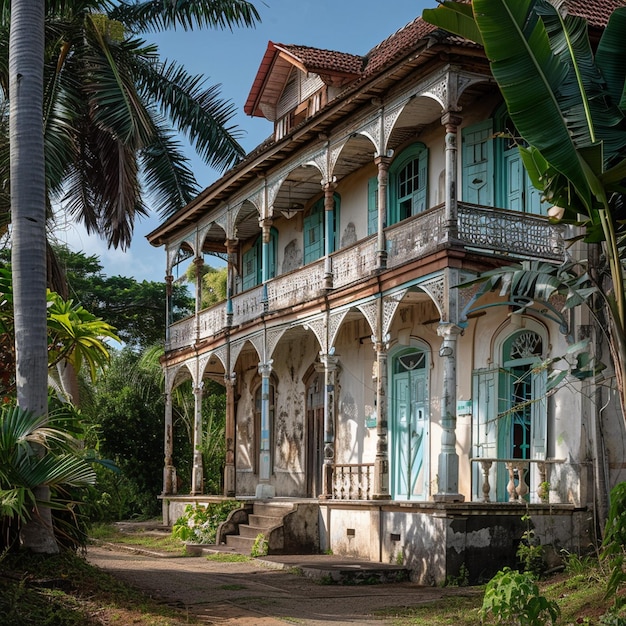The Paradox Of Mayotte: French Sovereignty And Persistent Colonial Attitudes

Table of Contents
The Legacy of Colonialism in Mayotte
Historical Context
The French colonization of Mayotte, beginning in the 19th century, profoundly shaped the island's identity and laid the groundwork for present-day challenges. Several key historical events solidified French rule and had lasting impacts:
- The Treaty of 1841: This treaty ceded Mayotte to France, marking the formal beginning of colonization.
- Resistance Movements: While French control was established, there were periods of resistance from the local population who sought to maintain their autonomy and traditional ways of life. These often involved localized uprisings and efforts to resist assimilation.
- Administrative Changes: Over time, Mayotte's administrative status evolved, transitioning through various forms of colonial governance before eventually becoming an overseas department. Each transition brought new challenges for the island and its people.
These historical events fundamentally impacted the social fabric of Mayotte, creating lasting inequalities and shaping the relationship between the island and its colonizer.
Socioeconomic Disparities
Colonial policies fostered significant socioeconomic disparities that persist even under French rule. These inequalities manifest in several key areas:
- Unequal Access to Education: Historically, access to quality education was limited for the majority of the population, creating a disparity in opportunities that persists today.
- Healthcare Disparities: Similar inequities exist in healthcare access, with limited resources and unequal distribution affecting the wellbeing of many Mayotte residents.
- Infrastructure Gaps: A legacy of colonial neglect resulted in a lack of infrastructure in many areas, further impacting access to essential services and economic opportunities.
- Economic Dependency on France: Mayotte's economy is heavily reliant on financial aid and subsidies from France, creating an economic dependency that limits its autonomy and resilience. This dependence also contributes to a class system where a small elite benefits from the relationship with France while a large portion of the population struggles.
These socioeconomic disparities are deeply rooted in the colonial past and continue to fuel social tensions and inequalities in present-day Mayotte.
Cultural Assimilation vs. Identity Preservation
The French administration's attempts at cultural assimilation have clashed with the Mahorese people's efforts to preserve their unique cultural identity. This tension is apparent in various aspects of life:
- Language: The prevalence of Shimaore, the local language, continues to be a significant marker of Mahorese identity, despite the prominence of French. Maintaining Shimaore in the face of linguistic pressure from French is a crucial aspect of cultural preservation.
- Cultural Practices: Traditional Mahorese cultural practices, often intertwined with Islam, face ongoing challenges from the imposition of French norms and values. The preservation of these customs is a central focus of resistance to complete assimilation.
- Religious Traditions: While Islam is the dominant religion, the integration of French secularism has presented challenges for maintaining traditional religious practices and values. Navigating the bicultural identity necessitates a balance between religious adherence and integration into the French system.
This struggle between preserving Mahorese cultural identity and the pressures of French assimilation remains a critical aspect of Mayotte's ongoing identity crisis.
French Sovereignty and its Manifestations
Administrative Control and Governance
As an overseas department, Mayotte is subject to French administrative control through various mechanisms:
- Overseas Department Status: This status grants Mayotte the same administrative status as any other department within France, subject to the same laws and regulations.
- Role of French Officials: French officials play a significant role in the administration of Mayotte, impacting all aspects of governance.
- Local Government Structure: Although local government structures exist, ultimate authority rests with the French state, sometimes undermining the voice of local political bodies.
Economic Dependence on France
Mayotte's economy exhibits a significant dependence on France, particularly in terms of:
- Financial Aid: Substantial financial aid from France is crucial for maintaining public services and supporting the island's economy. This aid, however, often comes with conditions that may limit Mahorese autonomy.
- Trade Relations: Trade with France is central to Mayotte's economic activity, creating a dependence that can make the island vulnerable to changes in French policies.
- Influence of French Policies: French economic policies significantly influence Mayotte’s economic development trajectory, sometimes to the detriment of local interests.
This economic dependence creates a vulnerability and limits Mayotte's ability to pursue truly independent economic development.
Security and Defense
France plays a crucial role in Mayotte's security and defense, particularly given the island's strategic location and regional instability:
- French Military Presence: A significant French military presence contributes to regional security and stability, deterring various threats.
- Security Concerns: Mayotte faces security challenges such as illegal immigration and piracy, requiring extensive French support for border control and maritime security.
- Social Impact: The heightened security measures impact the daily lives of Mayotte's residents, occasionally raising concerns about human rights and civil liberties.
While this security presence is vital for the island, it also raises questions about the balance between national security and individual freedoms.
The Paradox: Colonial Attitudes and Modern Governance
Persistent Inequalities
Despite French sovereignty, many inequalities directly linked to the colonial past continue to affect Mayotte's population:
- Housing Shortages: A significant lack of adequate housing plagues Mayotte, disproportionately affecting poorer populations.
- Access to Resources: Unequal access to essential resources, such as clean water and electricity, persists in many communities.
- Discrimination: Instances of discrimination based on ethnic origin and social status continue to be a reality in Mayotte.
These persistent inequalities demonstrate the enduring legacy of colonialism, even within the framework of French governance.
Political Representation and Participation
The extent to which Mayotte’s inhabitants can fully participate in French political life and influence decisions affecting their island remains a significant issue:
- Representation in French Parliament: Mayotte has representatives in the French parliament, yet their influence on policy decisions related specifically to the island is often debated.
- Local Political Structures: While local political structures exist, the reality of significant French administrative control often limits their effectiveness.
- Challenges of Political Participation: Language barriers, limited access to information, and limited political engagement among the general population hinder full political participation.
The degree of genuine political participation and influence remains a critical aspect of Mayotte's relationship with France.
The Ongoing Debate
The future of Mayotte is a subject of ongoing debate, focusing on:
- Autonomy: Calls for greater autonomy and self-governance are frequently heard, reflecting a desire for more control over local affairs.
- Self-Governance: Various models for greater self-governance are being discussed, balancing the benefits of increased autonomy with the realities of economic and security dependence on France.
- Reconciliation: Reconciling French sovereignty with the realities of Mayotte's unique identity and history is central to resolving the island's complex challenges.
Finding a balance between French sovereignty and Mahorese self-determination is a crucial aspect of resolving Mayotte’s ongoing challenges.
Conclusion
Mayotte's paradox – the conflict between French sovereignty and the continuing effects of its colonial past – presents significant socioeconomic and political challenges for the island's inhabitants. Persistent inequalities, limited political participation, and the struggle to maintain cultural identity all demonstrate the long shadow cast by colonialism. Understanding Mayotte's paradox is crucial for comprehending the complexities of post-colonial societies and the ongoing debate surrounding self-determination. Further research into Mayotte's unique situation will be vital for formulating effective strategies for addressing these persistent challenges and for charting a path towards a more equitable and self-determined future for Mayotte. Continue the conversation about Mayotte’s future by exploring the perspectives of its inhabitants and engaging with the ongoing debate about its unique path to self-determination and its complex relationship with France.

Featured Posts
-
 Wie Erfolgreich War Der Erste Vorentscheid Zum Esc 2025 In Deutschland
May 05, 2025
Wie Erfolgreich War Der Erste Vorentscheid Zum Esc 2025 In Deutschland
May 05, 2025 -
 Joseph Parker Vs Martin Bakole A World Shocking Upset On The Horizon
May 05, 2025
Joseph Parker Vs Martin Bakole A World Shocking Upset On The Horizon
May 05, 2025 -
 Plany Makrona Reformy Vo Frantsii Budut Vyneseny Na Referendum
May 05, 2025
Plany Makrona Reformy Vo Frantsii Budut Vyneseny Na Referendum
May 05, 2025 -
 Impact Of Trump Tariffs On Aritzia Pricing Strategy And Adjustments
May 05, 2025
Impact Of Trump Tariffs On Aritzia Pricing Strategy And Adjustments
May 05, 2025 -
 Fleetwood Mac A New Album Drawing On Classic Sounds
May 05, 2025
Fleetwood Mac A New Album Drawing On Classic Sounds
May 05, 2025
